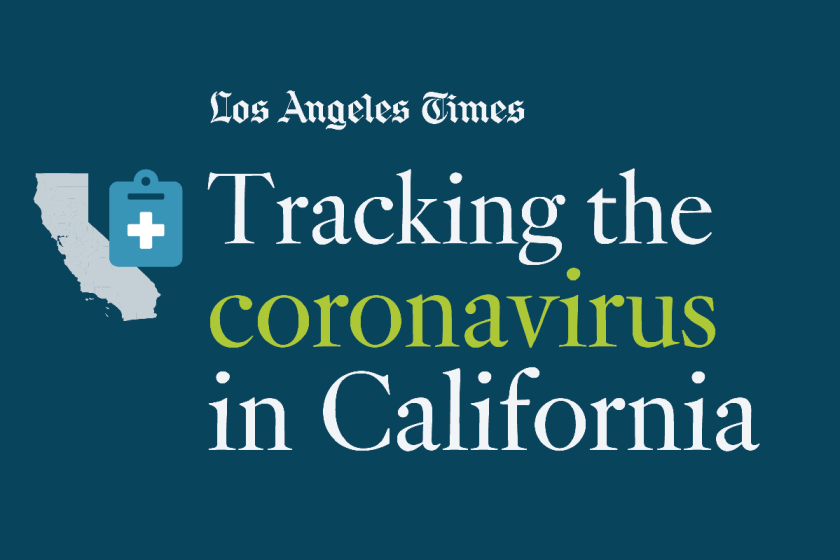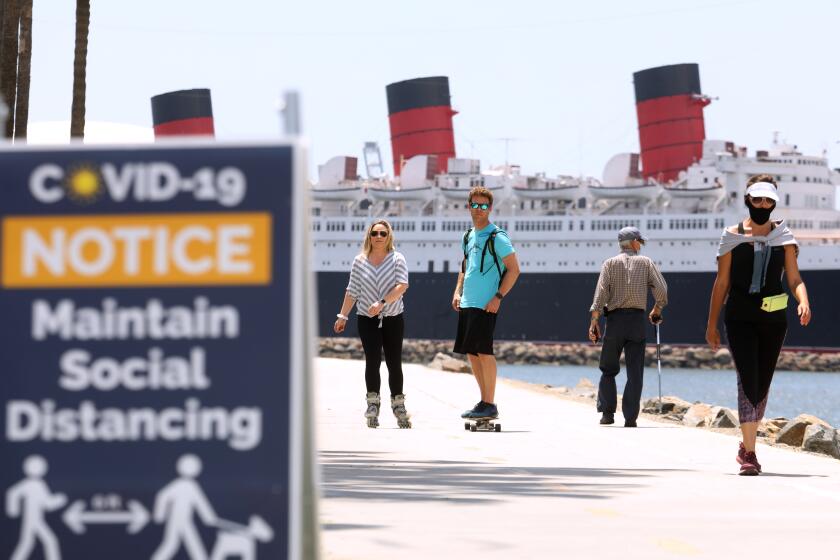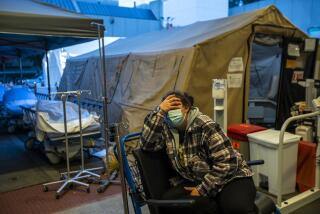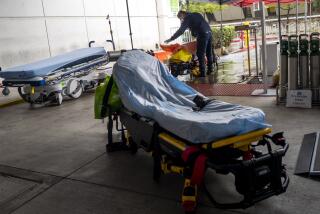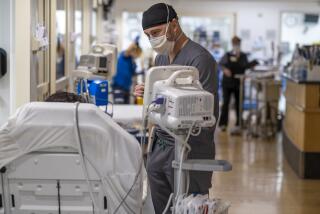Bay Area hospital desperately needs coronavirus supplies: ‘I see a disaster on the brink of happening’
A Bay Area hospital desperately need supplies, including masks
MILLBRAE, Calif. — An elected official in the San Francisco Bay Area pleaded for help Tuesday, appalled by the shortage of personal protective equipment at a hospital leased by the state of California to care for coronavirus patients.
“Here’s what I see: I see a disaster on the brink of happening,” San Mateo County Supervisor David Canepa said at a meeting of the Board of Supervisors on Tuesday, of the shortage of personal protective equipment, a category that includes masks, gowns and gloves, at Seton Medical Center in Daly City.
After a county official said the state has been unresponsive to calls for help, Canepa said: “Us not hearing from the state is problematic. Because we don’t have the resources — the hospital can only acquire 20% of what they need — we could have the potential of having all these COVID patients and no PPE [personal protective equipment],” Canepa said. “This is about a life and death issue.”
There’s also a shortage of staffing at hospitals in San Mateo County, and there are five empty intensive care unit beds as of Tuesday, out of a total of 66 available across the county, said Louise Rogers, chief of San Mateo County Health.
Located just south of San Francisco, San Mateo County is one of the hardest-hit counties in California’s coronavirus outbreak, with 309 confirmed cases and 10 deaths. There are about 70 people under investigation who may have the virus in San Mateo County, which has a population of about 770,000 people and is home to companies such as YouTube and Facebook. About eight different congregate care facilities — mostly assisted living facilities — have reported one or more COVID-19 residents.
The latest maps and charts on the spread of COVID-19 in California.
Rogers said state officials didn’t seem to have a plan to get adequate personal protective equipment to Seton Medical Center in Daly City, despite the state of California leasing 177 beds at the facility. Before the coronavirus crisis, Seton had been expected to be closed by its owner, Verity Health System.
“The PPE in particular has been a huge challenge. It really hasn’t been resolved,” Rogers told the supervisors.
Rogers said the owners of hospitals typically make sure the need for personal protective equipment is met within their own supply chains. Seton is purchasing personal protective equipment from a supplier, but the supplier is rationing the supplies, Rogers said.
There is a system for the county to call for mutual aid, where every county is grouped into a region, and the region is tied to the state. There’s a process for hospitals and nursing homes to request personal protective equipment through that system, and ultimately, requests can end up going to the state, and there are efforts to access a national stockpile.
But unfortunately, “they’re not fulfilling all those requests, because they themselves are rationing,” Rogers said. “The state has indicated that eventually that they’re going to try to fulfill them. But that has not happened.”
Seton Medical Center may have also been starting at a low inventory of supplies, Rogers said. Seton was on the brink of closure before the coronavirus crisis began.
Given the state’s agreement to lease Seton, Rogers said the county asked whether it would help. But, she said, “they didn’t seem to have a plan for doing that. So that was very concerning, and one reason I highlighted it this morning.”
Seton Medical Center is currently caring for eight patients who have COVID-19, and six others who are under investigation for having the disease.
San Mateo County Manager Mike Callagy said the county has asked the state Emergency Medical Services Authority for the personal protective equipment, “and they simply do not have them....The state really needs to push on the feds to get those supplies in so they can be distributed down through the system that’s in place here.”
There are also major challenges related to staffing hospitals in San Mateo County, Rogers said. She said she hopes Gov. Gavin Newsom’s effort to call for recent retirees to rejoin the healthcare workforce can help.
Hospitals are also concerned about whether skilled nursing and assisted living facilities will accept COVID-19 patients who no longer need care in a hospital. “We need those facilities to be able to manage COVID-positive cases on sight in their facilities to the extent possible if they don’t need hospital care,” Rogers said.
The coronavirus continues to spread rapidly in the Bay Area and Seattle, but so far at a rate slower than in the country’s other hot spots such as New York, New Jersey, Michigan and Louisiana.
Licensed facilities have the latitude to not take patients back if they don’t feel comfortable doing so, Rogers said. That’s why she hopes the county, state and the U.S. Centers for Disease Control and Prevention can figure out a way to get COVID-19 patients back into nursing homes if they no longer need to be hospitalized.
A federal medical site with 250 beds is being set up at the San Mateo County Event Center as a spillover area for patients who are recovering or have mild illness in case the hospitals are full. In addition, a hotel with 145 rooms is being used by the county as an alternative care and housing site. There are currently seven occupants there, but the hotel would need more medical support if more people move in with medical needs, Rogers said.
More to Read
Sign up for Essential California
The most important California stories and recommendations in your inbox every morning.
You may occasionally receive promotional content from the Los Angeles Times.
